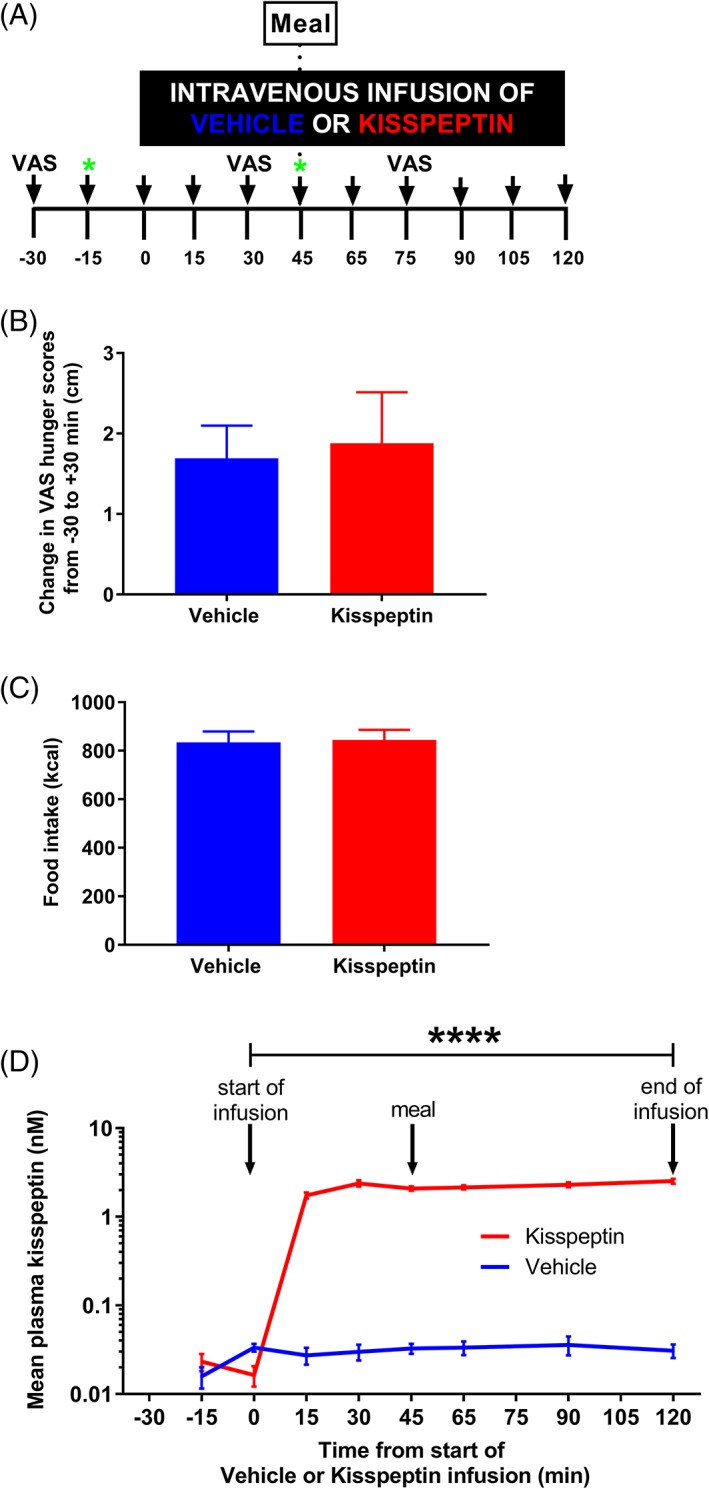Figure 4.

Kisspeptin administration does not affect appetite or food intake in healthy men. A, Following an overnight fast, 15 healthy men (age: 25.2 ± 1.1 years; BMI: 22.3 ± 0.5 kg m−2) were administered 1 nmol kg−1 h−1 kisspeptin or rate‐matched vehicle for 120 minutes, in random order. At T = 45 minutes, participants were given an ad libitum meal (which was eaten over a maximum of 20 minutes). Blood sampling was performed regularly (black arrows), with samples for metabolic profiling collected at T = −15 minutes and T = 45 minutes (green stars). Visual analogue scores (VAS) for volunteer‐reported hunger were recorded at T = −30 minutes, T = 30 minutes and T = 75 minutes. B, Mean change in pre‐meal volunteer‐reported hunger scores from T = −30 minutes to T = 30 minutes, as measured with VAS, were similar during kisspeptin (red bar) and vehicle (blue bar) administration; p = 0.8120 kisspeptin vs. vehicle (paired t‐test). C, Mean number of kcal ingested was similar during kisspeptin (red bar) and vehicle (blue bar) administration; p = 0.7178 kisspeptin vs. vehicle (paired t‐test). D, During MMTT, mean plasma kisspeptin levels were higher during kisspeptin compared with vehicle administration as expected; **** p < 0.0001 kisspeptin vs. vehicle (GEE). Data are presented as mean ± SEM; n = 15 per group
